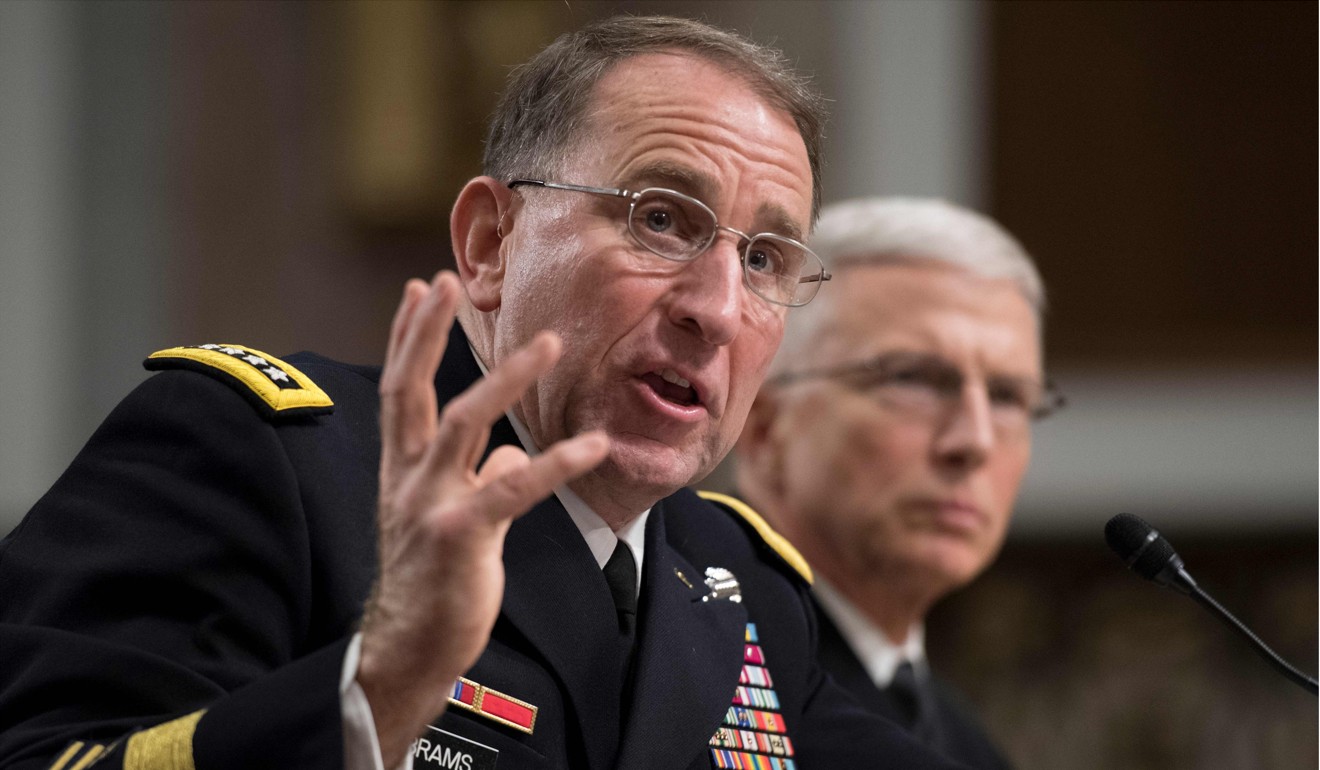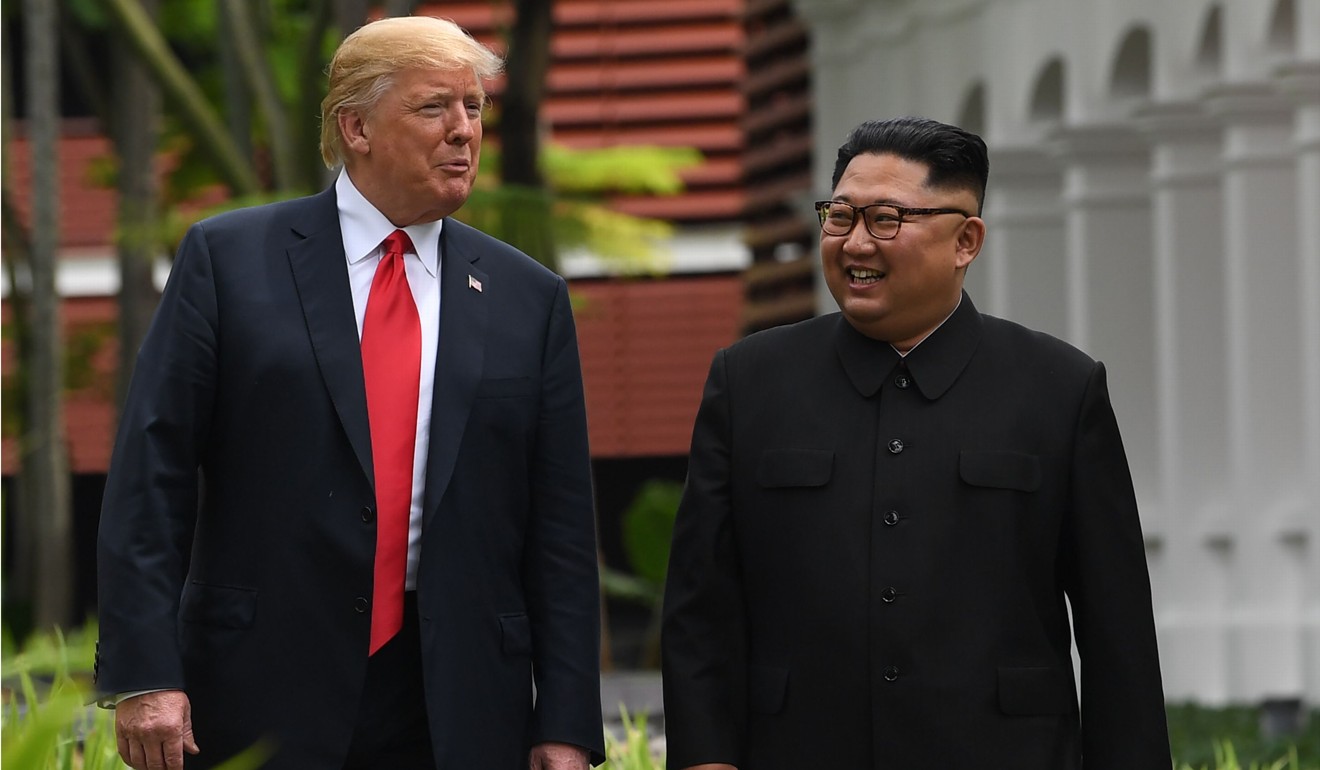
Halting ‘war games’ on Korean peninsula degraded UN forces’ readiness for a North Korean military threat, nominee for commander’s post says
General Robert Abrams, the four-star commanding general of the US Army Forces Command, was grilled by a US Senate panel on his nomination to become commander of all US forces in South Korea
The ability of US-led United Nations forces to respond to a North Korean military threat has degraded since US President Donald Trump agreed to suspend military exercises on the Korean Peninsula, the Pentagon’s nominee to command American troops in the region said on Tuesday.
General Robert Abrams, the current four-star commanding general of the US Army Forces Command, made the comment to the US Senate Armed Services Committee during a hearing on his nomination to take over the UN Command, the Combined Forces Command and US Forces in South Korea.
When asked by Democratic Senator Jeanne Shaheen about the impact of suspending the military exercises, Abrams replied: “There was certainly degradation to the readiness of the combined forces”.

The US said in late June that it had indefinitely suspended selected military exercises on the Korean peninsula to support Trump administration talks aimed at removing nuclear weapons from North Korea in the wake of US President Donald Trump’s meeting with North Korean leader Kim Jong-un in Singapore.
Kim Jong-un had long denounced US-South Korea military exercises in the region as an act of war aimed at North Korea.
The exercises were important in helping the allies “to maintain continuity and continue to practice our interoperability”, Abrams said. “So [without them] there was a slight degradation.”
However, he said he had “great confidence” that the outgoing US forces chief in South Korea, General Vincent Brooks, had instituted a “mitigation plan” to counter the degradation until military exercises resumed.
When asked by Democratic Senator Jeanne Shaheen if he had actually seen the mitigation plan, Abrams said he had looked at “some of it” and it called for a series of smaller scale and lower volume manoeuvres than usual.
At the hearing, Republican Senator Tom Cotton asked Abrams if “it is critical that we resume military exercises” and also sought confirmation from the nominee that the “next major [exercise] is scheduled for the spring [in 2019]”.
The general answered affirmatively, saying “exercises scheduled for this spring, the major exercises, to my best knowledge”, were in the planning stage. Whether they actually are held “is a future decision to be made by alliance leaders,” he said.
A spokesman at the US Defence Department did not immediately respond to an email seeking confirmation that the Pentagon plans to resume military exercises next spring.
Democratic Senator Joe Donnelly asked Abrams if he agreed with a recent South Korean press report which said that if the suspension of major military exercises continued, in just two years, routine duty rotations would leave most officers in the US-South Korea combined command with little to zero experience in conducting joint exercises.

“Do you agree with that assessment? And has the cancellation of these exercises impacted our readiness and ability to fight tonight?” Donnelly asked.
Abrams responded that the temporary suspension of exercises was a “prudent risk”, since it supported “the opportunity to open up additional diplomatic efforts and negotiations between the United States and DPRK”.
The general emphasised that “we know inherently [that] by not conducting training exercises there will be a degradation of readiness and capability in the interoperability of the combined forces”.
He said if his nomination were confirmed by the US Senate, one of his “top priorities” would be to conduct a “personal assessment of the readiness of the force and the actual true war fighting capabilities of the combined forces”.

